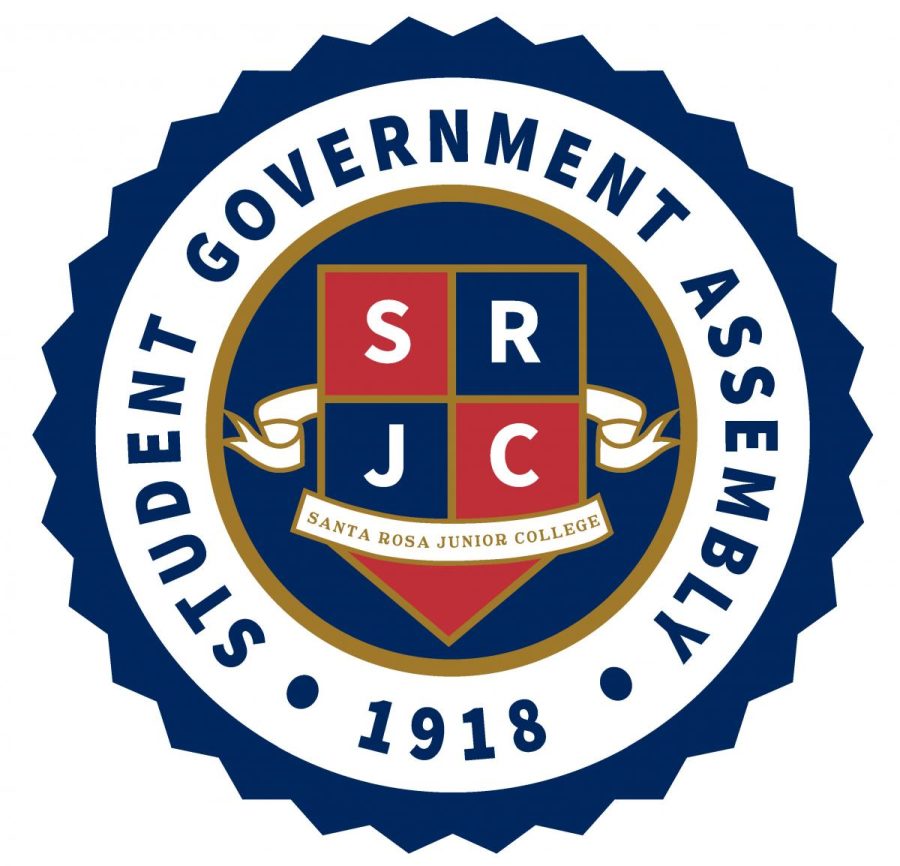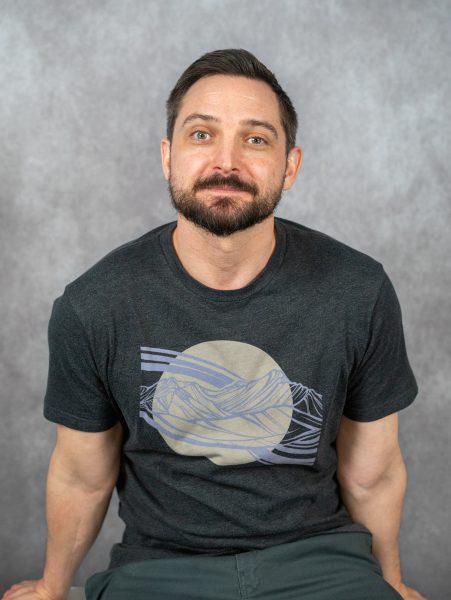Santa Rosa Junior College’s Student Government Assembly appointed a new student to the Curriculum Review Committee, approved funding for cheerleader gym mats and received updates on Student Health Services, enrollment, police presence on campus and the B-CARE team, at its meeting Aug. 29.
Committee appointment
SGA voted unanimously to appoint Ludmilla Bade to the Curriculum Review Committee, which reviews course curriculum to ensure that it complies with education code.
“I’ve taken over 70 units at more than one college campus. I have experience from a number of different walks of life, including being homeless for almost three years,” Bade said.
Bade sits on several committees in the county, such as strategic planning for homelessness, and wants to create a homeless insecurity resolution program for SRJC.
“I’m an intelligent person, but I floundered with some social skills necessary to defend myself from situations that happened in my life,” Bade said. “So I’ve come back to college as a returning and older student, and I’m getting the skills that I need to pull myself out of homelessness. And I’d like to see a program that could help others.”
Student Body President Abrea Tillman said Bade addressing SGA is a perfect example of how students contribute to making SRJC a stronger community.
“It goes from being extremely micro to your own personal experience to being extremely macro on what SRJC as an institution can do to help other people,” Tillman said.
New cheerleader mats
Dori Elder, student vice president of clubs for the Santa Rosa campus who coaches the SRJC cheerleaders, requested SGA funding for new mats. SRJC cheerleading is considered a club sport and does not receive funding from the SRJC sports department. The mats they are currently using are 15 to 20 years old and are no longer safe or sanitary. SGA approved $3,500 in funding for five new mats: $750 from Student Life Santa Rosa campus, $750 from Student Life Petaluma campus, and $2,000 from the SGA discretionary budget.
Student Health Services updates and Monkeypox vaccine availability
Director of Student Health Services Rebecca Norwick, DNP spoke to SGA about how the department provides the monkeypox vaccine for those who have been exposed to the virus.
“We have started seeing exposure in the elementary schools and the colleges are concerned about wrestlers and police officer trainees who grapple and use gym equipment,” she said.
Monkeypox is transferred through skin on skin contact, Norwick said, and students shouldn’t worry about infection from using seats in the classroom. Student Health Services is also providing the vaccine pre-contact for those who qualify as high risk according to CDC guidelines. Men or transgender women who have sex with men or transgender women in a “risky fashion,” such as anonymous sex, or a person with HIV are people who qualify.
Norwick also said Student Health Services now has the Novavax non-mRNA COVID-19 vaccine in addition to the Pfizer and Moderna COVID vaccine.
“Pfizer and Moderna are still considered excellent vaccines but if someone has a worry or had a reaction to Pfizer or Moderna then this is a good vaccine for them,” she said.
Student Health Services will no longer provide the Janssen one-shot COVID vaccine because it’s less effective and has more side effects Norwick said.
Norwick notified SGA student health fees will increase from $21 to $23 for regular semesters and $19 to $20 for Summer semesters. Full student health services are available for students taking classes in-person or remotely.
Student Health Services has two clinics, one on the Santa Rosa campus and one on the Petaluma campus. Both have nurse practitioners and physicians who provide reproductive care, first-aid and prescriptions for mental health medications. Mental health therapists are also available.
There is now a COVID wing at Student Health Services that validates COVID vaccines uploaded to Cleared system COVID testing centers, Norwick said. Nurses provide contact tracing and self-care counseling for people testing positive for COVID.
Norwick said Student Health Services also provides outreach to help improve student health awareness with PEERS, student employees who work with an outreach coordinator.
Student enrollment, campus police and student housing updates
President Dr. Frank Chong and his cabinet attended the meeting. Dr. Chong announced despite the difficulties of remote learning last year, SRJC had more than 600 students transfer to Sonoma State University, the highest of any year so far.
“That shows the commitment, the grit and determination of the students, faculty and administration of trying to get people through the pipeline,” Dr. Chong said. “That’s what we’re here for — to get you where you need to go, whether it’s a four-year college or to become the best welder and support your family.”
Despite this milestone it’s no secret student enrollment is down, Dr. Chong said. Many students still struggle with the economic and psychological impacts of COVID and are stressed about coming back to campus in-person. He and his cabinet plan to hold forums and town halls to get student feedback on how to bring enrollment back up.
Vice President of Academic Affairs Robert Holcomb stressed how Peers Assisted Learning Specialists, or PALS, are critical to facilitate the transition to in-person classes. PALS are students hired to aid students in and out of the classroom. PALS are an empowering opportunity for students to get jobs on campus and engage with the SRJC community.
Dr. Chong said SRJC is planning to hire two more campus police officers. SRJC typically has 10 full-time police officers, but currently has only six.
He is aware some students may be concerned about this in the wake of the deaths of George Floyd and Breonna Taylor and said SRJC does a lot to increase communication between the campus police and students’ needs.
“So please invite Chief Brownlee to one of your [SGA] meetings and he’ll be happy to answer any questions and make suggestions that you have. I think we’re very lucky to have him, because he takes his job very seriously,” Dr. Chong said.
Robert Ethington, vice president of student services, said SRJC needs police officers to handle violent confrontations, but officers trained in B-CARE, Behavioral Consultation Assessment Response Education respond to most situations.
“When it’s mental health we’re going to send trained professionals that are not armed officers,” Ethington said.
Ethington also let SGA know the leasing office for the new student housing, located in the northeast corner of Plover Hall, opens Sept. 12. There is a simulated dorm room so students can see the available beds and storage spaces.
Advisor for the SRJC Petaluma Council Candy Owens wanted students to be aware that there is a Petaluma side to the MySRJCApp, and they are working to make fresh content.
Owens said the Petaluma campus Welcome and Connect Center, in partnership with the Petaluma Council and Black Student Union, hosted nine in-person events last year with 407 students attending and is looking to increase those numbers now that more students are on campus.
She said the Petaluma campus has a food pantry that offers free food to students. It served 456 students last year. This year the food pantry will host monthly events.
Owens encouraged students to check out the new Student Engagement and Success Center on the Petaluma campus, which has a lot of “cool things” to play with and will soon have video games.
SGA’s next meeting will be held at 3 p.m. Sept. 12 in the Bertolini Senate Chambers.





Mateo Prusky • Sep 6, 2022 at 7:11 pm
“We have started seeing exposure in the elementary schools”
Is this an error? If not, is there any source that backs this up?
Nick Vides • Oct 6, 2022 at 5:01 pm
Hi, Mateo. Thank you for reading The Oak Leaf. This is not an error. The reference to exposure in elementary schools was stated by our source, SRJC Director of Student Health Services Rebecca Norwick, Doctor of Nursing Practice.